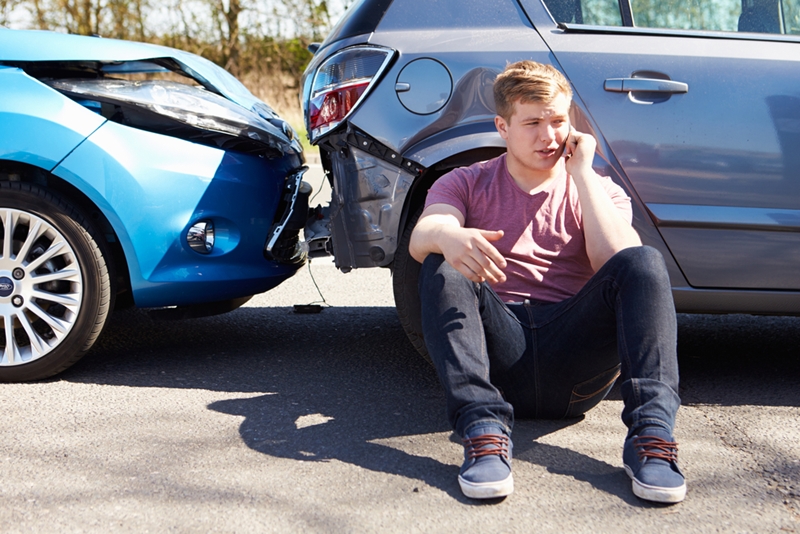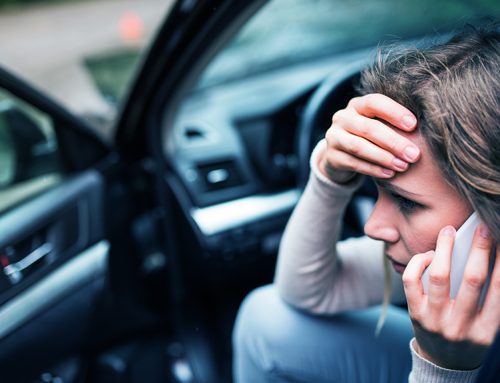The ‘now what’ after a car accident injury
Car accidents happen every day. Most of them are fender-benders, but many are serious enough to leave the motorists involved injured. Indeed, according to the National Highway Traffic Safety Administration, more than 2.4 million people were hurt in auto crashes in 2015, often requiring hospitalization. That’s a 4 percent increase from the previous year.
Both emotionally and physically rattled, car accident sufferers can find it difficult to focus on the next steps, especially if it’s the first time they’ve been in a collision. Adding to the confusion is determining who is to blame and injury severity.
Should you ever be involved in crash that results in injury, the following information can help you navigate the “what now.”
Listen to your body
When you’re hurt in a crash, your body tells you pretty quickly, whether it’s a sharp pain in your neck or a dull ache in your back. Be receptive to your symptoms so you can explain how you feel to the doctor. Your symptoms may change, but it’s important to reference the first one you experienced so your primary or emergency care physician can order the appropriate tests.
Make phone calls
Who should get the first call: your insurance company or the police? If your injuries are serious, neither. Your first call should be to 9-1-1 so emergency personnel can be dispatched. Furthermore, as DMV.org noted, this step will enhance your injury claim, especially if you pursue legal recourse. After that, police as well as your insurer should be contacted so they’re aware of the situation.
Exchange information
If the accident involved one or several other motorists, exchange basic contact details with them to begin the claims process. In addition to getting the other drivers’ names, insurance and contact specifics, take photographs of the automobile(s) and observable injuries. This action will help expedite the claims process and provide corroborating evidence for why medical treatment was necessary.

You’ll need to make several calls after a car accident, especially if you’ve been injured.
If the accident involved one or several other motorists, exchange basic contact details with them to begin the claims process. In addition to getting the other drivers’ names, insurance and contact specifics, take photographs of the automobile(s) and observable injuries. This action will help expedite the claims process and provide corroborating evidence for why medical treatment was necessary.
See the doctor
If your injuries are severe, the doctor is your first item of business. But assuming the injuries aren’t life-threatening, a visit to the hospital comes next. While there, the attending physician will do a formal examination, but be sure to explain what your symptoms were immediately following the crash and any that developed later on. For example, whiplash injuries are quite common after car accidents, but the aftereffects may come a day or two later.
If tests and procedures are necessary – such as x-rays or CT scans – hold on to the receipts. In fact, document all forms of correspondence, especially if your treatment requires more than one health care provider.
Consider speaking with an attorney
Assessing who is at fault may be simple or hard to determine. Either way, hiring a personal injury attorney may be worthwhile. Injury lawyers are well-acquainted with insurance companies and may be able to help you figure out if your entitled to compensation. Additionally, an attorney can serve as an authority on what, if any, legal recourses are available to you and whether a lawsuit is worthwhile.
Car accidents happen in the blink of an eye, but the aftereffects can seem like they’re never-ending. In fact, even if you win a case and are compensated, it can take several months before you receive payment. That’s a problem when you have medical bills to pay.
Glofin provides cash advance loans in fewer than 24 hours. Find out if you qualify by clicking here, or you can apply right now.



